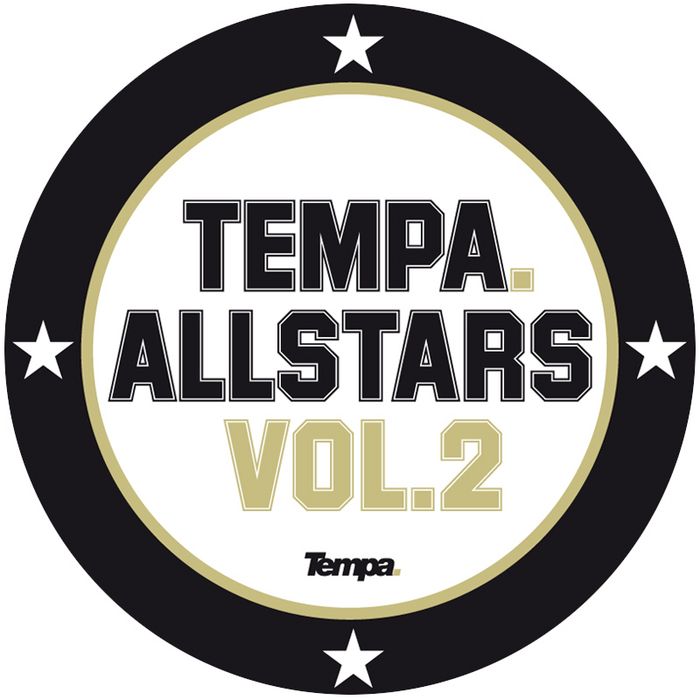11.

Various – Tempa Allstars Vol. 2
This is just a personal thing, I’m not going to say it’s the best tracks from the old dubstep scene or anything. But it made me check out Geeneus, which was a really big one for me, because I think Geeneus – out of all the old school producers – has probably been the biggest influence. It was cool, because it wasn’t so defined which was which yet, you could still get grime that sounded kind of dubsteppy. And there was an early Mala beat on there which is very percussive, and signalled towards where he was going with his stuff. Which was always my favourite side of DMZ anyway, where it was almost house music Mala would do – he almost had piano house numbers at 140bpm, that galloping thing. There was a hint of that, and there was a really weird track by D1 called ‘Crack Bong’ which was just like ‘what!?’
I think that was one of my first dubstep purchases. I remember mixing it back and forward with all the tracks, spending hours with it, just mixing the tracks. I was absolutely obsessed with how much space was in them. Things soon changed. [At that time] grime and dubstep were almost the same thing. I was so disappointed by the fact that they went separate ways and that people started to refer to them as separate things, because I just caught the era when it was the same – as soon as I started learning more about it, it felt like the two things separated out. That was always a massive source of frustration to me. It was diverging and I could see the things that were being fetishised about dubstep and I didn’t like it, and from really early I could feel the beat pattern becoming more boring. When you’ve experienced things like Slimzee sets, or even Geeneus sets when he’d play a bit of both, it’s really hard to go back to something straighter and basically just more boring. It’s good that I decided to make a change and start looking for other stuff. Club, US stuff, Baltimore stuff, Detroit stuff, kuduro, and South American house was a huge thing for me as well. I was so lucky to find all those things because I could have just become, like, a troll. [laughs]
The reason I was frustrated is because it felt so transient. All those people that used to go to FWD>> at that time just caught a glimpse of what may be, and then it quickly moved on. But over time I’ve learned not to get attached – to just appreciate the tracks that come out of a scene, and then once that scene starts to transform, just accept that. Also, when a good track comes out, you kind of have to accept that that’s the best example of that genre. ‘Cause up until quite recently, I was really hoping it would be possible to maybe resurrect some of that. But it’s like, why try? ‘Cause actually a lot of music came out of that time, and sure it wasn’t the most high profile or well recognised, but actually you have to accept that sometimes those arrangements were the best they could be, and that no one should be trying to better it. Which is kind of my problem with the new grime scene actually. It’s just riffing on the same, but maybe rearranging something a little bit; in a way it’s been done, and it was done better already, and a long time ago.


